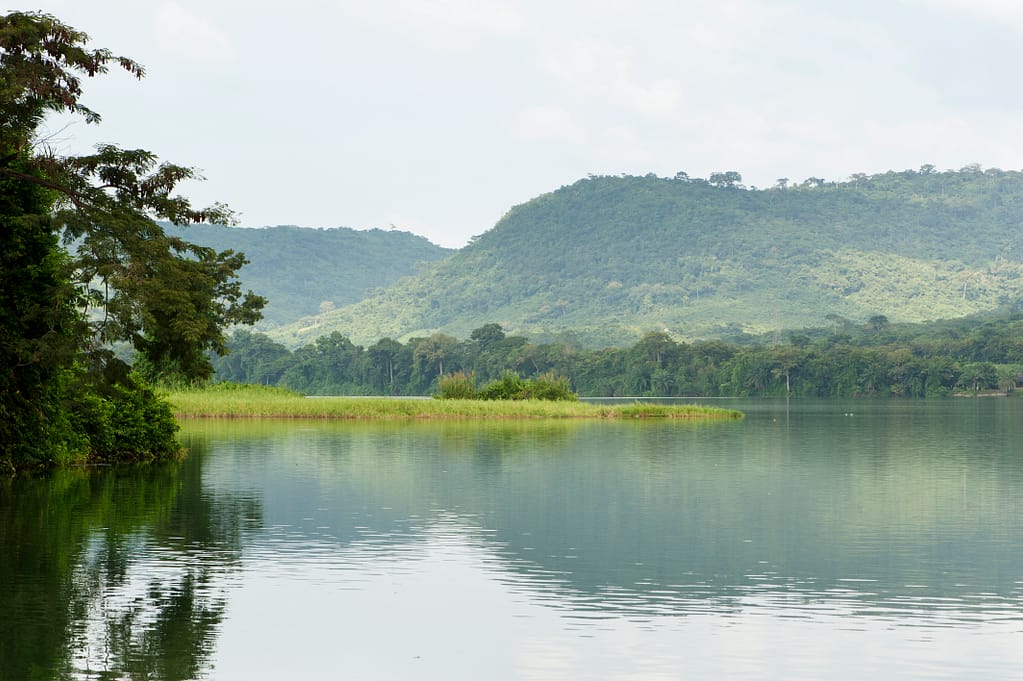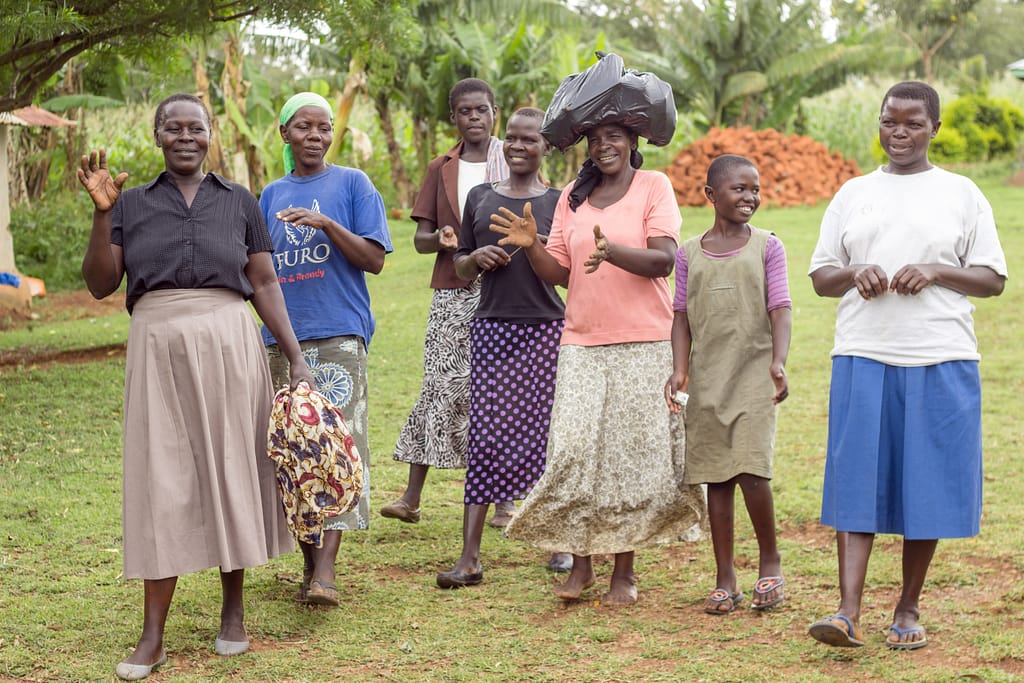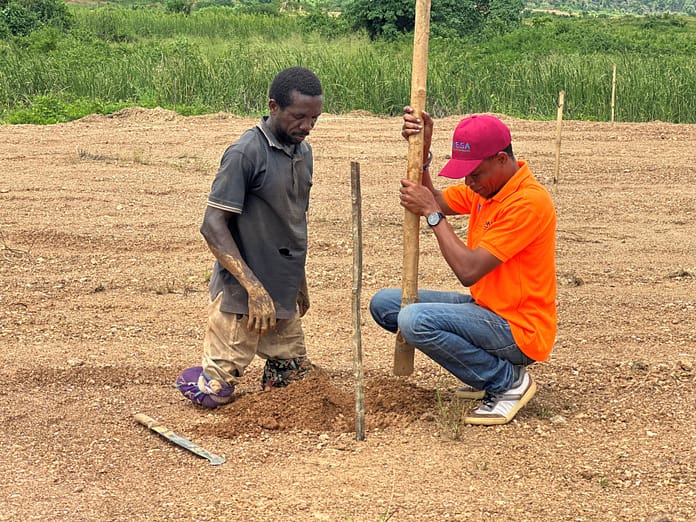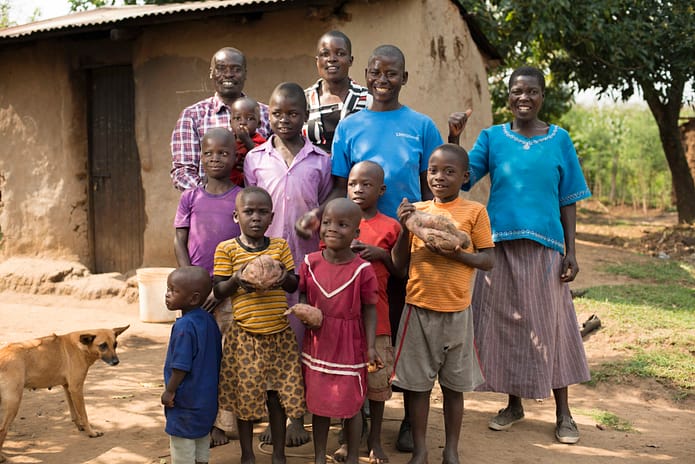By Funminiyi Peter Oyawole, Charity Osei-Amponsah, Gerald Atampugre & Olufunke Cofie

Ghana is endowed with abundant natural landscape resources, featuring diverse ecosystems and natural resources such as forests, savannahs, river systems, mineral deposits, wetlands, and rich biodiversity that sustain various livelihood activities. These landscapes face increasing pressure due to heightened demand for natural resources driven by population growth, climate change impacts and anthropogenic activities. Sustainable management practices are crucial to ensure the long-term well-being of these landscapes and the communities that depend on them. However, achieving this sustainability requires more than just technical solutions. It necessitates diverse perspectives, equitable decision-making, and the inclusion of all stakeholders. This is where Gender and Social Inclusion (GESI) comes to the forefront.
A recent study conducted by the International Water Management Institute (IWMI), under the CGIAR Initiative on West and Central African Food Systems Transformation, examined the extent of GESI integration in landscape management-related policies in Ghana. The study focused on national and sectoral policies while drawing on the Ahafo Ano South West District (AASWD) Medium Term Development Plan as a district-level case study. By identifying potential gaps in alignment across different levels of governance, the study aims to contribute to fostering inclusive and sustainable landscape management in Ghana. This blog post delves into the study’s findings, providing insights on how stakeholders can work towards developing more inclusive and effective landscape management policies for sustainable development in Ghana.
Ghana’s commitment to GESI
Ghana has demonstrated commendable commitment to GESI through national policies like the National Gender and Youth Policies. These policies establish a framework for mainstreaming GESI across all public policies in all three GESI domains:
access to resources: which ensures equitable access to resources like land, water rights and mining concessions for all, particularly marginalized groups such as women, youth and Persons with Disabilities (PWDs); agency and capability: which empower marginalized groups by enhancing their participation in decision-making, leadership, training and resource governance; and institutional structures: which tackles discriminatory policies, social norms and traditional practices that hinder inclusivity within various sectors.
Progress and achievements
The study identified positive steps toward GESI integration in some critical policies at the national, district, and sectoral levels:
The Medium-Term National Development Policy Framework (MTNDPF) aligns strongly with national GESI-related policies. It recognizes Ghana’s sub-optimal GESI level and actively promotes equitable access to resources, capacity building, and institutional transformation through affirmative action and cultural norms reform, among other strategies.
At the sectoral level, the Food and Agriculture Sector Development Policy (FASDEP II) is complemented by the Gender and Agricultural Development Strategy (GADS II) to achieve GESI in the agricultural sector. GADS incorporates targeted measures (such as community sensitization on women’s land rights, targeting women and youth in agro-inputs and extension service delivery, and ensuring a minimum quota for women in leadership) to address specific inequalities within the sector. These measures focus on ensuring equitable access to productive resources for all, promoting a cultural shift towards more inclusive practices and building the capacity of all stakeholders involved.
At the district level, the Ahafo Ano South-West District Medium Term Development Plan (MTDP) outlines concrete measures to empower women, youth, and PWDs in leadership roles and resource management, ensuring their voices are heard in decision-making. IWMI facilitated the co-development of an Inclusive Landscape Management Plan (ILMP) with different stakeholders from the district, including women, youth and civil society to define a shared vision for the landscape and ensure both inclusivity and sustainability.

Gaps and challenges
Two main gaps were identified, particularly in sectoral policies. The forestry and water policies focus more on building the capacity of women, youth, PWD and other marginalized groups, and promoting their participation in resource governance. However, these policies need more concrete actions for ensuring equitable access to resources and addressing discriminatory norms. The Minerals and Mining Policy stands out for its complete absence of GESI measures, which may worsen existing inequalities among social groups in the mining sector, which currently tends to favor men. Secondly, the sectoral policies (except agriculture) do not fully align with the national GESI policies. This incoherence undermines the effectiveness of efforts towards achieving GESI objectives and sustainable landscapes.
These gaps highlight the need for revising landscape management-related policies to comprehensively integrate GESI considerations across all sectors and ensure better alignment with the national GESI policy.
Strengthening GESI in landscape management policies requires:
- Conducting sectoral GESI gap analyses to identify existing inequalities and provide evidence-based information to guide policy revisions and development of contextually relevant GESI strategies;
- Raising awareness by sensitizing stakeholders, including government officials, community leaders, and marginalized groups, about the importance of GESI for sustainable landscape management;
- Equipping stakeholders with the knowledge and skills necessary to implement GESI strategies effectively through GESI-focused capacity building programs; and
- Promoting stakeholder participation in policy processes, fromformulation and implementation to monitoring, evaluation and learning about landscape management policies.
IWMI contributes to bridging the gaps in Ghana by empowering women and youth in water resource monitoring and management. The Institute is also strengthening the capacity of government officials for GESI in planning and implementing and co-developing inclusive landscape management strategies and plans. Addressing the gaps will pave the way for truly inclusive and sustainable landscape management, ensuring the long-term well-being of its landscapes and communities.



